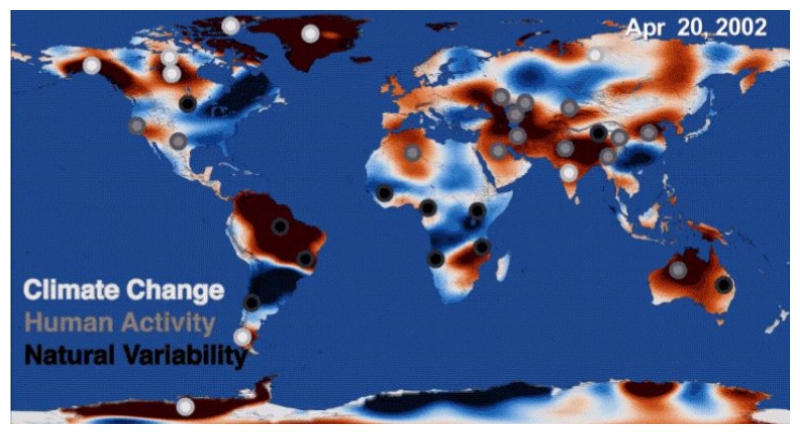NASA points out a major freshwater shift on Earth in 14 years
Washington, May 17: After collecting more than a decade worth of data from Earth observation satellites, NASA has discovered that freshwater levels have changed significantly across the globe.
It is a first-of-its-kind study in which the scientists have combined an array of NASA satellite observations of Earth with data on human activities to map locations where freshwater is changing around the globe and to determine why.
NASA tracked freshwater trends in 34 regions around the globe from Gravity Recovery and Climate Experiment or the GRACE mission. Then, to make sense of those trends, they combined the information with patterns of climate change and human activity such as irrigation maps and reports related to agriculture, mining, and reservoir operations.
Freshwater is found in lakes, rivers, soil, snow, groundwater, and ice. Freshwater loss from the ice sheets at the poles attributed to climate change has implications for sea level rise. On land, freshwater is one of the most essential of Earth's resources, for drinking water and agriculture. While some regions' water supplies are relatively stable, others experienced increases or decreases, the observations noted by NASA study revealed a distressing pattern.
"What we are witnessing is major hydrologic change," said co-author Jay Famiglietti of NASA's Jet Propulsion Laboratory (JPL) in Pasadena, California. "We see a distinctive pattern of the wetland areas of the world getting wetter – those are the high latitudes and the tropics – and the dry areas in between getting dryer. Embedded within the dry areas we see multiple hotspots resulting from groundwater depletion."
These changes were classified into three categories namely Human Activity, Natural Variability and Climate Change. And in these 34 spots, 2 were of India that is Northern part and Southern Part and it was observed that in Northern India the freshwater depletion was caused because of the Human Activity whereas Southern India saw freshwater changes because of the Climate Change.